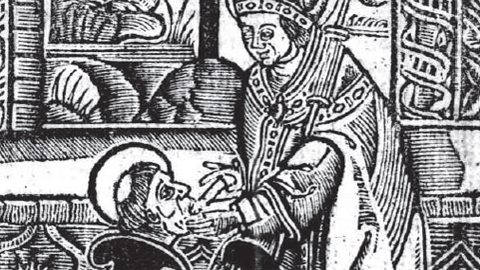Study of biblical exegesis in the Iberian Peninsula during the Middle Ages

28/10/2014
On 29 and 30 October, an international debate entitled "La lectio divina a la Península Ibèrica medieval. Posició, producció i usos de l'exegesi" will take place at the conference hall of the Faculty of Philosophy and Arts. The title of the debate refers to the exegesis of the Middle Ages, the lectio divina understood in the broad sense of the term as different ways of interpreting the sacred scriptures.
The study of this matter presents peculiar characteristics in the Iberian Peninsula, where there are no known proper biblical commentaries between those of Beato de Lébana (who died at the end of the 8th century) and Martín de León (who died in 1203). This meeting will serve to question the intellectual, cultural, political and economic conditions behind the election of exegesis and the disinterest shown among the Christian kingdoms of the Iberian Peninsula in the Middle Ages. The different sessions will be grouped into three blocks: "Exegesis in the Early Middle Ages: an Iberian tradition?", "The Uses of Exegesis, in and outside of the Cloister" and "The lectio divina and the Problems of that Era".
The debate has been coordinated by Cándida Ferrero, lecturer of the UAB Department of Antiquity and Middle Age Studies; Amélie de las Heras, lecturer of the Université de Versailles-Saint-Quintin-en-Yvelines; and Florian Gallon, lecturer of the Université de Rouen. It also includes the collaboration of the project Islamolatina (La construcción de la identidad europea occidental: textos, contextos y discursos de controversia frente al islam y el judaísmo).
More information:
The 'lectio divina' in the Iberian Peninsula. Position, Production and Uses of the Exegesis